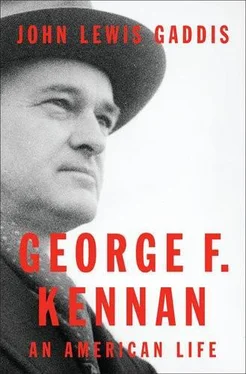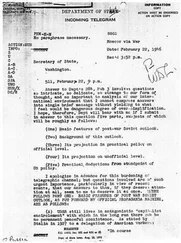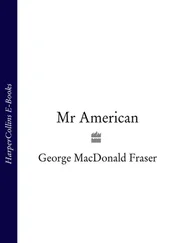Kent had to provide financial as well as emotional support, however, which meant entrusting his children, most of the day, to nurses and maids while he was at the office. “They were a problem,” Constance pointed out, “because if they liked children they weren’t such good housekeepers, and if they were good housekeepers, they didn’t care so much for the children.” So Kent’s second cousin Grace Wells, a young kindergarten teacher from Massachusetts, moved to Milwaukee and took up residence as a second mother for the Kennan children—the first George knew apart from his nurses. “She was really only with us for three years, but it seemed like a long long time because we were so happy. And of course she adored George—he was her baby. We all adored Cousin Grace.” 14
But this, too, was not a stable situation, for in 1908 Kent announced his intention to remarry, and Cousin Grace had to go. Jeanette never forgot getting the news. She and her sisters burst into tears, ran upstairs, and found Grace weeping also. For George, it meant losing yet another mother. Louise Wheeler, who grew up in Michigan, had been a preceptress in Latin and Greek at Ripon College, Kent’s alma mater, where they had met. “When they were first married,” Jeanette speculated, “they must have been a little romantic about each other, although we never thought they were in the later years—and when they wanted to say something that they didn’t want us children to hear, they ’d say it in Latin or Greek.” The children resented Louise for supplanting Cousin Grace: she was, behind her back, “the kangaroo from Kalamazoo.” 15
“We felt that she wasn’t always very nice to our father,” George later explained. “We doubted, I think, how much she really loved him.” Jeanette saw a different problem, which was that “my stepmother never really understood little boys. She wasn’t at all an earthy person. She couldn’t understand, for instance, why little boys would want to eat so much. How they could be so ravenous…. She was a very nervous woman, and any little thing that [George] did that was awkward—you could see her wince.” 16
Four years after the marriage, Louise unexpectedly became pregnant: her husband was then sixty-one. So in 1913 George found himself with a half-brother, also named Kent, who took most of his stepmother’s time and diverted the attention of his older sisters. George “took a back seat,” Jeanette remembered. “All of us loved the baby, [but] I don’t know whether George loved him as much as the three sisters did.” The younger Kent later acknowledged that George “did not feel at ease with my mother. He said to me that he’d never had a mother. I think she tried, she did the best she could to understand him, but I don’t think he felt she was getting through to him.” 17
George’s father found it difficult to provide consolation. He was, Frances pointed out, “a very sensitive man, but the fact that he was sensitive made him awkward. I never did get close to my father in any way at all.” Emotional but distrusting emotion, Kent senior prided himself on having learned early in life “to do a thing which ought to be done, when it ought to be done and as it ought to be done, whether I felt like doing it or not.” Such stoicism was little comfort to a son from whom his father concealed his softer side. “When we went abroad the first time,” Jeanette explained, “we were on the ship just before we sailed, and they played the ‘Star Spangled Banner,’ and ‘All ashore that are going ashore.’ My father put his arm around me and I started to cry. He said: ‘I always do, too.’” But “as George got a little older, he didn’t put on that side for him. He thought it wasn’t manly.” 18
“It was a very straight-laced family,” the younger Kent remembered. “No movies or card-playing on Sunday, never a swear word. For example, ‘darn’ was considered too strong to use, and ‘damn’ was completely out. Once when I was taking French in high school I said ‘Mon Dieu’ and my father scolded me for it.” Jeanette was even reprimanded for discussing the birth of puppies at the dinner table. The children were brought up in the Presbyterian Church, and their father made a point of reading the Bible all the way through several times. The girls learned to play the piano, but only for the purpose of accompanying hymns on Sunday evening.
Even here George was left out, for although his half-brother was also taught piano at an early age, that instrument was not thought appropriate for George, who proceeded to learn it on his own. He was, to his disgust, dispatched to dancing school, an indignity to which he responded with “sullen rages and sit-down strikes.” Musical talent was there, though, and it showed up at unexpected moments, as during the summer task of picking strawberries with Jeanette. “George would harmonize with me, knowing what I was going to sing, because it was so obvious. But it wouldn’t have been obvious to anybody who didn’t have a great deal of music in him.” 19
The Kennans were also literary. His father had collected a large library, from which George read extensively: “I had nothing else to do.” Writing and speaking were also important, Kent junior remembered: “When I would write letters home, I would sometimes get misspellings corrected in the letters I received back.” Jeanette recalled “the speech in our house [as] very, very correct.” While still little, she and George would have supper together at five o’clock, and “we carried on some wonderful conversations. We liked big words, and so when we’d find a new big word, we’d use it.” One was “reputation.” They weren’t sure what it meant, “but we brought it into every sentence, while we ate our cream of wheat with maple sugar on it.” 20
Still, something was missing in family life on Cambridge Avenue. When the children were older and allowed at the dinner table, George and his siblings would flee at the first opportunity, preferring the company of books to that of grown-ups. “It’s unusual for a family, I think, to disperse like that,” Jeanette pointed out. “But we just never played games together, or sat around. I don’t recall any real merriment when we were just ourselves.” George recalled “daydreams so intense and satisfying that hours could pass in oblivion of immediate surroundings.” His intensity became a family legend when an aunt, traveling with the brooding boy, felt obliged to tell him: “Stop thinking for a little while!” 21
Jeanette would later reflect on how little home life George had. He lost his mother without ever getting to know her. He loved Cousin Grace but lost her too. He gained a stepmother, but never regarded her as a real mother. His father, George himself later admitted, “was so much older, and I still remained so shy that I seldom really talked with him.” How much did all of this matter? “I sometimes wondered,” George recalled in his old age, “whether all the grown-ups were not really deceiving me, and whether one day they would not come out and say: ‘You little goose. Did you really think that we cared anything about you?’” 22
They never did, of course. Many children fear rejection, most of the time it doesn’t happen, and it certainly did not to young George. Despite the losses with which he grew up, he was hardly bereft of adults who cared. Milwaukee and its environs were full of grandparents, aunts, uncles, cousins, and friends to whom the Kennan children could look for sympathy and support. “Everybody felt so sorry for [us],” Jeanette recalled, that at Christmas “we were showered with things.” 23And next door there were even surrogate parents.
Edward and Ida Frost were wealthy and well educated, owned a large house at 945 Cambridge Avenue, and lacked children of their own. The middle name Florence had picked for her son reflected the Frosts’ friendship: he was George Frost Kennan. After her death, Constance remembered, “they had us over there and would read aloud to us. They were just second parents to us, always.” “They were so close to our family,” George added, “that we called them Uncle Edward and Aunt Ida.” No fence separated the two houses, so the Kennan children always had a large yard available for baseball games and other activities. The Frosts even installed a special telephone line so that the families could keep track of one another. They remained, in young Kent’s memory, “very strong, charming people, more outgoing and convivial than either my father or my mother.” 24
Читать дальше












